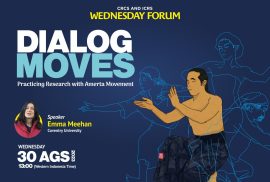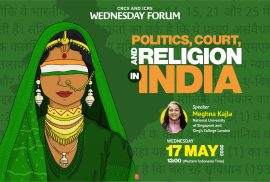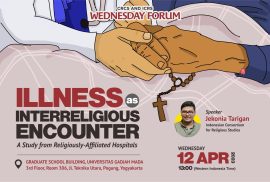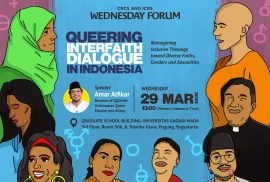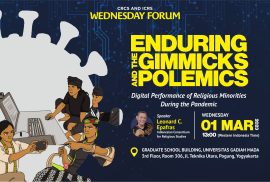Dialogue Moves: Practicing Research with Amerta Movement
Wednesday Forum – 30 August 2023
I have been undertaking a fellowship that investigates how Amerta Movement practice (developed by Javanese movement artist Suprapto Suryodarmo) supports dialogue between diverse ethnic and religious communities in Indonesia. This has been done in collaboration with Samsul Maarif (CRCS, UGM), Diane Butler (Dharma Nature Time), and artists who worked closely with Pak Prapto. Engaging with CRCS has prompted me to reconsider research methodologies from my own field of dance studies and their potential contribution to religious and cross-cultural studies. In particular, the area of practice research in performing arts explores how engagement in creative practice has the potential to develop new ways of knowing. I will share how my own bodily experience and creative responses have lent themselves towards new understandings of the research enquiry on dialogue through the Amerta Movement. Finally, I consider what practice research might offer a researcher engaging in dialogue across differences, inspired by Kershaw’s call for the ‘profound challenge to established modes of knowledge production in universities that the creative impulse in practice might, at its best, always produce’ (2009, 5).

